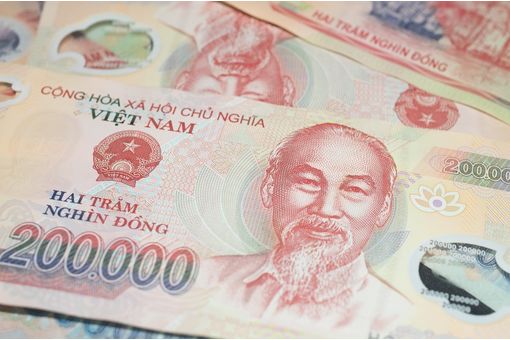Interviews
Combating China more vital than Peru FTA - AMTAC
12 Nov '07
4 min read
Trade between the United States and Peru totaled a paltry $8.8 billion in 2006. Nevertheless, the U.S. trade deficit with Peru was $2.95 billion, as Peru exported approximately twice as much to the United States as it imported from us.
According to the CIA World Factbook, Peru's Gross Domestic Product (GDP) at official exchange rates was 1/170th of the U.S. GDP. In comparison, China's GDP was 1/5th of the U.S. GDP.
Peru has less than 1/10th of the U.S. population and its per capita GDP is less than 1/16th of that of the United States. More than 50 percent of all Peruvians live in poverty.
“To expect Peru to become a major consumer of U.S. finished products is a ludicrous assumption,” Tantillo stated. “Peru has a much greater capacity to export to the 300 million-person, $13 trillion U.S. market than it does to buy finished U.S. products. Like the U.S. free trade agreements before it, the Peru FTA only will add to the massive U.S. trade deficit,” he added.
“The United States should put all current free trade agreement negotiations on hiatus until it fixes the major trade policy problems confronting American producers and workers,” Tantillo stated.
Major problems needing immediately to be fixed include:
• Eliminating the estimated $421 billion disadvantage to U.S. producers and service providers caused by foreign value-added (VAT) taxes by passing H.R. 2600, the Border Tax Equity Act introduced by Congressmen Bill Pascrell (D-NJ), Duncan Hunter (R-CA), Mike Michaud (D-ME), and Walter Jones (D-NC).
• Combating currency manipulation by predatory trading partners like China by passing H.R. 2942, anti-currency manipulation legislation introduced by Congressmen Tim Ryan (D-OH) and Duncan Hunter (R-CA).
• Vigorously enforcing existing U.S. trade laws to stop illegal transshipping, illegal subsidies, dumping, and copyright, trademark and patent infringements.
• Ensuring the safety of foreign-made products sold to U.S. consumers.
“Fixing these problems would do far more to help the U.S. economy, its companies, and its workers than continuing the fatally flawed concept of adopting free trade agreements with countries that can export but have little capacity to import U.S. manufactured goods,” Tantillo concluded.
According to the CIA World Factbook, Peru's Gross Domestic Product (GDP) at official exchange rates was 1/170th of the U.S. GDP. In comparison, China's GDP was 1/5th of the U.S. GDP.
Peru has less than 1/10th of the U.S. population and its per capita GDP is less than 1/16th of that of the United States. More than 50 percent of all Peruvians live in poverty.
“To expect Peru to become a major consumer of U.S. finished products is a ludicrous assumption,” Tantillo stated. “Peru has a much greater capacity to export to the 300 million-person, $13 trillion U.S. market than it does to buy finished U.S. products. Like the U.S. free trade agreements before it, the Peru FTA only will add to the massive U.S. trade deficit,” he added.
“The United States should put all current free trade agreement negotiations on hiatus until it fixes the major trade policy problems confronting American producers and workers,” Tantillo stated.
Major problems needing immediately to be fixed include:
• Eliminating the estimated $421 billion disadvantage to U.S. producers and service providers caused by foreign value-added (VAT) taxes by passing H.R. 2600, the Border Tax Equity Act introduced by Congressmen Bill Pascrell (D-NJ), Duncan Hunter (R-CA), Mike Michaud (D-ME), and Walter Jones (D-NC).
• Combating currency manipulation by predatory trading partners like China by passing H.R. 2942, anti-currency manipulation legislation introduced by Congressmen Tim Ryan (D-OH) and Duncan Hunter (R-CA).
• Vigorously enforcing existing U.S. trade laws to stop illegal transshipping, illegal subsidies, dumping, and copyright, trademark and patent infringements.
• Ensuring the safety of foreign-made products sold to U.S. consumers.
“Fixing these problems would do far more to help the U.S. economy, its companies, and its workers than continuing the fatally flawed concept of adopting free trade agreements with countries that can export but have little capacity to import U.S. manufactured goods,” Tantillo concluded.
American Manufacturing Trade Action Coalition
Popular News
Leave your Comments
Editor’s Pick
Therese Premler-Andersson
Textile Machinery Association of Sweden (TMAS)
Folker Stachetzki
Brother Internationale Industriemaschinen GmbH
































-Ltd..jpg?tr=w-120,h-60,c-at_max,cm-pad_resize,bg-ffffff)





.jpg?tr=w-120,h-60,c-at_max,cm-pad_resize,bg-ffffff)
.jpg?tr=w-120,h-60,c-at_max,cm-pad_resize,bg-ffffff)






